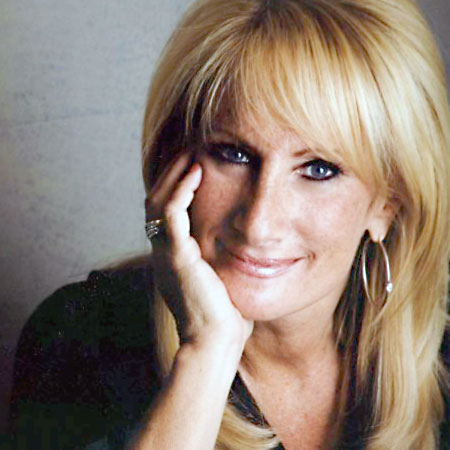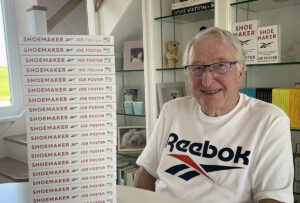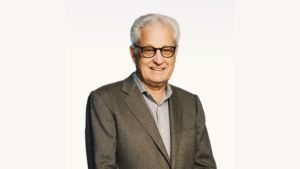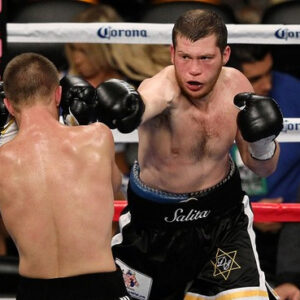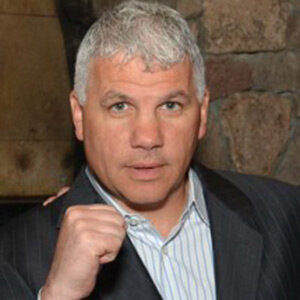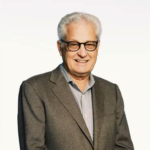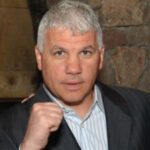View this episode's trailer
Episode Description
“I felt helpless, but I just prayed and prayed and prayed.”
Dr. Onik talks to Senior Executive Producer of the Emmy®-winning newsmagazine “Extra,” now in its 28th season, Lisa Gregorisch-Dempsey, who experienced an incredible spiritual transformation during her husband’s health crisis. Lisa had a typical Jewish upbringing in New Jersey, but her media career took her all over the country, having spent most of her career in California. One night, taking a call in her office at Extra, dressed in a gown about to attend the Emmys, she abruptly did an about face toward home. Her husband Gary had been told he had cancer on the back of his tongue.
From Gary’s unexpected heart surgery to radiation to chemo, Lisa began praying in her car, and reading Christian author Max Lucado for the peace it brought her. Then she started reading the New Testament. Gary fully recovered and didn’t seem to mind when Lisa read him passages from the Bible, having grown up Methodist, but converted to Judaism when they married. But it wasn’t until Gary got a call years later learning that the cancer had metastasized to his lung that he also got on the prayer wagon.
Today, alive and well, the couple remarkably have dedicated their lives to Jesus. They never miss a day of their early morning ritual together, spending time with God.
Dr. Onik asks Lisa, also known as the Doctor Whisperer, has your Christianity ever made you uncomfortable or affected your career? Lisa is quick to respond, “Not even for one second. I have a big forum to help other people,” and she uses it to spread hope.
For over 40 years Dr. Gary Onik has been pioneering advances in cancer treatment that have rocked the field of oncology, inventing an entirely new branch of cancer treatment now known as “Interventional Oncology” based on his innovative minimally invasive techniques. Both doctor and patient, he created a cancer vaccine and successfully treated his own terminal prostate cancer using his invention. In addition to his medical practice, Dr. Onik is an Adjunct Professor of Mechanical Engineering at Carnegie Mellon University, working closely with his colleagues to develop the next generation of cancer fighting technologies. His latest work, using immunotherapy to treat metastatic cancer, offers hope to those patients with literally no other options.
TRANSCRIPT
Intro: Hello, I’m Dr. Gary Onik, and I’m your host for Cancer is Tough, but YOU are TOUGHER! I want to thank The Beach Boys for allowing us to use their piece of music that is dear to my heart. My podcast is uniquely personal. I know both sides of the cancer equation. I am a cancer specialist and researcher, as well as a cancer patient and survivor. I will address various treatment modalities in the podcast, but that’s not really what this podcast is about. This podcast is about the unique cancer journey that a patient and their family and friends take when they are diagnosed and treated with this dread disease. We’ll delve into the inner emotional and spiritual resources. Patients and their loved ones need to address their concerns of choosing a treatment strategy that will harmonize with their worldview while grappling with state-of-the-art treatments versus alternative treatments. When I was asked who’s going to be my target audience, the obvious answer was everyone. It’s a rare person that has not had cancer touch their lives, either as a patient, a family member or friend. If you’re that rare person that hasn’t had cancer touch their lives, almost certainly at some point, cancer will drag you into its maelstrom. I hope that you find this show both a resource and a comfort in dealing with your cancer journey.
Dr. Gary Onik: So I’m proud to have our first celebrity guest on our podcast. Lisa D or Dempsey, soon to be known as a.k.a Mrs. Hope, but more about that later. Lisa is one of the most respected news magazine producers in the country. She serves as the senior executive producer of the Emmy winning newsmagazine Extra, and now in its 28th season and her position at Telepictures Productions, she works on development of new television series, utilizing Extra as a lab to create and nest other original content and programing. I was interested to see and looking at your bio that you created one of the first shows around a celebrity doctor, Dr. Drew Pinsky.
Lisa Dempsey: Oh, you know what? We had a show called Life Changers where…
Dr. Gary Onik: Yes.
Lisa Dempsey: It was the best of the best. Mainly doctors. And basically, celebrities could get to these doctors, but the public couldn’t. I mean, it took a lot of, you know, who you know. Anyway, we put Dr. Drew Pinsky—who is also a doctor; he’s an internist—in as the host of the show. And he had mainly been known as a, you know, great guest on shows. And he had done radio and he had done some other reality shows, but he had never done a syndicated show. So, we did put him on that show.
Dr. Gary Onik: Yeah. So you really, in a sense, launched him in a way…
Lisa Dempsey: No, I did not.
Dr. Gary Onik: You are extremely accomplished in your world. And we can take all of our time discussing your media career, but that’s not why we’re here. As I said, I’ve got some trepidation doing this because I’m an amateur. This is like I’m getting up at the T with Tiger Woods. If I slice it into the woods just cut me some slack, okay?
Lisa Dempsey: Listen, Tiger Woods can’t save people’s lives like you do, so I’m going with you every time.
Dr. Gary Onik: Thank you very much. Let me get to some of your background, because it’s important and germane to what we’re talking about. Growing up, as I understand, you grew up in California.
Lisa Dempsey: I grew up, actually, in New Jersey. And most of my career has been in California, although in news, I went all over the country to crazy places.
Dr. Gary Onik: S,o when you were growing up, you were Jewish. Did you live in a Jewish neighborhood?
Lisa Dempsey: Yeah, I did. Went to temple, the whole shebang. I was never bar mitzvahed. I was a kid in the back of the class, you know, throwing spitballs.
Dr. Gary Onik: And so, you had this, I think, what is a pretty typical Jewish background, just like mine. I grew up in a Jewish neighborhood and I was bar mitzvahed. But for me, being bar mitzvahed was well, it was a celebration of freedom, actually. So I didn’t have to go to Hebrew school anymore. And so, I wasn’t from a terribly religious family. But I think that’s the way a lot of Jewish families are; a bit more secular sometimes.
Lisa Dempsey: And it sounds like you and I were both Jew, emphasis on ish.
Dr. Gary Onik: Yes. Right. Yes, definitely. So, everything’s going great. And then one day you get this world-shaking news. Tell us about that.
Lisa Dempsey: Okay. So, I was sitting at my desk in my office at work and I was about to go to the Emmys and I had a gown on and they were waiting downstairs, my crew, for me to go. And I got a call from my husband, Gary, on the golf course, who basically says to me, Hey, I just heard from the doctor. Remember that test I took the other day? It seems that I have…. He thought he had skin cancer. And I couldn’t really hear him that well because the wind was blowing out on the golf course. And I was like, what? I don’t understand. So I was like, let’s get the doctor on a call. So, he gets the doctor on the call and then the doctor says they found some cancer in the back of Gary’s tongue. And it’s very curable. He’s going to have to get radiation and maybe a little bit of chemo, but he’ll be fine. Well, that’s not like little, you know, skin cancer on your hand. So, I start Googling and I don’t really understand, and I burst out crying and I run down the stairs of Extra. And we also had another show on at the time called Crimewatch Daily. And I run past my Extra crew and my Crimewatch crew, get in my car and don’t tell anybody that I’m not going to the Emmys. I take off and I go home.
Dr. Gary Onik: Oh wow.
Lisa Dempsey: So, you know, we’re a little unclear on exactly what this means, and we’re trying to figure out, okay, so how do we find an oncologist? That’s the next step. We ended up with… it’s so crazy, like the people God puts in your path for a season for a reason, but people who will change your path. So. Mark McGrath, who used to be the host of Extra, he’s the lead singer in Sugar Ray, and his best friend is a radiologist at Cedars, named Dr. Amin Mirhadi. So, I text him and he calls me right back and he said, okay, calm down, I’m going to get you in tomorrow, like you’re my sister. We just recruited this guy from Sloan-Kettering in New York to be the head of radiology. He looks like Doogie Howser. But he said you will love him, and he works with Dr. Scher; the two of them in tandem will get Gary through this. The next day we had an appointment. We went in. I don’t think we knew, you know, what was in store because Gary was about to start radiation. And two weeks later I get a call from him. I’m in my office, I’m in a meeting, I get a call. And I always take his calls. He said, Don’t panic, but I just fainted. I was like, What are you talking about? He said, I just fainted. My friend George is going to take me to our concierge doctor, meet me there. So, I go and I meet him there. Well, fast forward to him back at Cedars, this time in the emergency room, his electrical system in his heart gave out. So the next day, he had to get a pacemaker. This is before we even start radiation. So, this is also a tangential story, but… So, we’re in the E.R. and Gary’s heart rate goes down to 37. And just as it happens, the head of all of the electro cardiologists walks by; Dr. Goodman. All the cardiologists for Gary are out at some big convention, but only the best is left behind to cover for them. He goes, Oh, you need me to the room. He’s like a god, and parts the Red Sea, because bunch of doctors, bunch of nurses come in and he grabs like a paper towel, and he explains Gary’s electrical system in his heart, why he needs a pacemaker. Okay, so surgery’s scheduled for the next morning because Gary had just eaten. That night, at about two in the morning, his heart rate goes down to 27. And I’m sitting there, kind of not understanding what’s going on exactly, but Gary finally fell asleep and it’s two in the morning. In walks the asshole cardiologist of the century. This guy’s a fellow and he’s got another doctor in town. And he basically comes up to me and says, Are you Mrs. Dempsey? And I said, Yes. And he goes, Your husband’s probably not going to make it through the night. I’m like, What? He says, I’m probably going to have to use the paddles on him. So, this wakes Gary up. Gary looks up at him and he says, Mr. Dempsey, you know, your heart rate is really falling rapidly, and we might have to use the paddles and you’re in dire straits. Gary looks up at him very calmly and says, Actually, I am going to make it through the night and I’m going to be on the operating table at 6 a.m. with Dr. Goodman. And he’s going to give me a pacemaker just like we arranged. And this guy, when he hears Dr. Goodman, the God of the hospital, he’s like, Oh, Dr. Goodman. Okay. And then he and the other guy, like, scurry away. And the next morning he got the pacemaker. He was fine, thank God.
Dr. Gary Onik: So, we had a bump in the road of the cancer treatment. How did it proceed from there?
Lisa Dempsey: We stay the course. I mean, Gary recovers in 2 to 3 weeks. You know, he was more worried about not being able to go back on the golf course. And then he starts the radiation, gets three big doses of chemo through over these seven weeks, comes out. Now, all the while, I’m you know, I just pray in my car. So, praying in my car, I start reading some Max Lucado books during this time, just, you know, for peace. And, you know, I was obviously anxious about it, but I didn’t want Gary to see. And he’s losing weight… So, every single week is a different battle. Like, will he or won’t he need a feeding tube because he’s lost, you know, he ends up losing like 37lb, 38lb. So, I’m reading Max Lucado, then I start reading the New Testament, and Gary sees me when we’re home on the couch, and he sees me reading this and doesn’t pay any mind. And I read him little passages, doesn’t pay any mind, because… I hadn’t mentioned this. He started out in upstate New York, in Binghamton as being Methodist. And then he really didn’t follow religion because his grandfather was a pastor and it was very fire and brimstone. It almost scared him. And he married me, he converted to Judaism. I never asked him to convert. He just thought it was a beautiful religion. So, he was more Jewish than you and me. You, meaning you.
Dr. Gary Onik: Yeah, definitely more Jewish than me.
Lisa Dempsey: Right. Right. You know, that’s all the while I’m praying in my own way and, you know, Gary still doesn’t get on the prayer wagon and he’s not necessarily practicing Judaism. So, he gets through the treatment. He’s very thin, but gets back out on the golf course, gets back to doing everything that he does athletically, and we’re fine. Two and a half years go by. You know, all the people with this kind of cancer we know are fine, cured, basically. He still goes every six months for his CAT scans. This Monday, he goes for a CAT scan, he has a bad reaction to the dye. We’re sitting at breakfast, and we were really blessed because the doctor will call us that same day with the results. Setting up breakfast and all of a sudden his back starts hurting like doubled over excruciating pain. Then all of a sudden, he starts shaking uncontrollably like this. I get him into the car, I literally don’t know if I should go to the E.R. or go to the concierge doctor. Drive to the concierge doctor. I mean, his body is shutting down because of this reaction and because of dehydration, which we don’t know. Well, his concierge doctor doesn’t know what to do. He throws a blanket over him. I’m like, I could have done that.
Dr. Gary Onik: I mean…
Lisa Dempsey: It gets worse.
Dr. Gary Onik: I don’t mean to laugh at it, but…
Lisa Dempsey: What else can you do?
Dr. Gary Onik: You have to laugh at it.
Lisa Dempsey: Right.
Dr. Gary Onik: Yep.
Lisa Dempsey: So, this doctor, I won’t say his name because no one will ever go to him again, calls the paramedics to come to his office. They show up, these sort of swaggering guys. Instantly they figure out that he’s dehydrated and he explains about that; they tell him he probably had a bad reaction to the dye. But just to be safe, we go in there, you know, siren vehicle to the E.R., which is like your front door pass, right? You get right in.
Dr. Gary Onik: Sure.
Lisa Dempsey: Yes. He’s sitting, you know, in bed. We call our two friends who I work with, they’re like daughters to us. They both come and show up and we’re there. And it’s unusual because the doctor normally will call us 2 hours later and tell us the results. And thank God they’ve all been good. Well, two and a half years in, I’ll never forget the doctor lumbers in with his head down and I’m like, Oh, that is not his normal disposition. This is not good. He basically says, well, this is not what we hope for. The cancer has metastasized to your lung. But then he said, But it’s not as bad as it sounds because it’s literally only one nodule. It’s one nodule. And it’s in a place in your lung, in the lobe, that’s very resectable, and I’ve had this before. And only a couple of times because normally it metastasizes to a lot of places and it didn’t. So, I don’t know. You’re blessed, he basically said, and you know, Gary sort of had tears in his eyes and he’s a tough guy. And he had never, really, I’ve not seen him cry very many times. And he was like sort of, you know, why me mode? Which he also never felt sorry for himself. So, I felt helpless, but I just prayed and prayed and prayed. Found the best doctor for him to actually have the lung surgery. Had the lung resected, he got over that pretty quickly and we had just bought a house in Naples. I had four years left on my contract. So, we moved here on Christmas Day, 2019. Sidebar had just changed the show to be the show behind the show. So, you literally could see us making the show. But instead of in my office, Billy Bush and I would talk over Zoom. Coincidentally, it was during COVID, so everyone basically went home except for like 12 people in my office. So, that was sort of divine intervention in the craziest possible way. December 25th, I wake up that morning, Gary is reading the Bible, the Old Testament. Gary is reading my Max Lucado books. Gary is reading a devotional. He starts, which we both haven’t missed a day since this ritual of getting up at 4:44 in the morning, and comes out here for an hour and a half on his own, reads everything, absorbs everything. I come out for another hour, I translate the Bible for that day, whatever chapter we’re on, and then he will sort of preach a chapter from Billy Graham, Max Lucado and Graham Joyce Meyer, you name it. We started reading all these Christian books. I mean, this is hard for me because my uncle runs a temple in Boca. So, some of my family know, but not all. I mean, we haven’t missed a day and we are Christian, and we’ve dedicated our lives to Jesus. And I really feel like everything before that I never felt totally protected or safe or understood any of it. I didn’t understand the Holy Spirit, how that dwells us after you’re saved. You know, the only thing I didn’t do is get baptized and get my hair wet because, you know, Jewish interests and so.
Dr. Gary Onik: And so, two and a half years out from the nodule and everything is cool.
Lisa Dempsey: Well, he just… Yeah, he just got a CAT scan and, thank God, all clear.
Dr. Gary Onik: So, you know my thoughts on prayer.
Lisa Dempsey: I love how you [inaudible] prayer.
Dr. Gary Onik: I mean, doctors are trained and inherently atheists.
Lisa Dempsey: Well, hang on. That’s pretty profound, when you come out and say that. Oh, that’s right. Because they think they’re God.
Dr. Gary Onik: Do you know the old joke? Where in heaven they’re at the cafeteria and there’s a line to get the food. And a little old man in a white coat with a stethoscope around his neck cuts in front. And one of the people on the line said, that’s not fair. And the other person goes, Shhh, that’s God. He’s playing doctor.
Lisa Dempsey: That’s funny.
Dr. Gary Onik: So, we are trained. I mean, we’re naturally atheists because we’re empiricists. We believe in science, and science for 200 years has really separated us from God. Because if you’re an empiricist, you say if you can’t touch it, feel it, then it’s not real. I needed science to bring me to a profound faith in God. I needed to see, number one, evidence. And I saw that in my own practice where patients were being healed. One in particular was healed by prayer only. And I needed to see a scientific underpinning for God. And quantum physics is creating a very… it’s a wonderful, wonderful time to be in because science is now bringing us back to God. It doesn’t show us that God exists, but it shows us how God could do and affect all of the things that we just have to have faith for. And now, through this, basically, vibrational field that is everywhere and every square millimeter of the universe is filled by it, well, that is, in my mind, the way God works and exists and affects us because our consciousness affects things.
Lisa Dempsey: When you talk about quantum physics, I saw how you took a quantum leap to actually, yes, you’re evidence based, but to have faith in the unseen, because believing in God is hoping in the unseen.
Dr. Gary Onik: Oh, of course you have to… Nothing is going to prove that God exists. I needed to see that there could be a foundation scientifically for that to happen. You can see that foundation. I mean, you know, there are legions of physicists that are still atheists, who have the quantum basis, but actually use it to deny that there’s a god.
Lisa Dempsey: Until something happens in their own lives.
Dr. Gary Onik: Until something happens in their own life, until something focuses their attention on the fact that they need something beyond this.
Lisa Dempsey: The fact that they’re flesh and human. And to me, anything I can dream or imagine, I have to tell you, once you give your life to Jesus like I did, and I’m not a Jew for Jesus because I’m not a Jew anymore. Once you give your life to God, Gary, God creates a life for you that’s so much bigger and better than anything you as a mere human could imagine. That’s what I found. And that is so beautiful.
Dr. Gary Onik: That is wonderful. And I, and as a Jew, I kvell for you.
Lisa Dempsey: Don’t give yourself a [inaudible].
Dr. Gary Onik: So, you’ve told some stories about doctors that haven’t been exactly perfect. And I want you to know I found this on the web. Can you see that?
Lisa Dempsey: Oh, is that my friend Steve and I reading… Oh, a friend of ours. Yeah.
Dr. Gary Onik: Yes. Yes. It basically says, don’t let your doctor kill you.
Lisa Dempsey: Yeah. Do you know Dr. Erika Schwartz in New York? She’s a friend of mine and she wrote that book.
Dr. Gary Onik: Well, and I think that, you know, there is some truth to that, as you’ve seen. Physicians are on a bell curve too. I mean there are great ones. There are, you know, good, competent ones. And then there are people who are terrible, terrible about what they do. And one of the most disturbing things about medicine, we tend to protect our psychopaths.
Lisa Dempsey: Hmm. Explain.
Dr. Gary Onik: For instance, there’s a patient who’s coming to me, very sophisticated patient, needed to have his prostate removed, was referred to the doctor to remove his prostate. And in the operation he was, you know, had uncontrolled bleeding and complication after complication. And now he has a tube draining his bladder. And the nurse after it said, I’m so sorry I didn’t tell you. He does this to everybody.
Lisa Dempsey: What?
Dr. Gary Onik: Yes. And there are a number of books about this situation where doctors end up going from place to place. And there are psychopaths in every field and doctors have their share of them. You know, sociopaths who just don’t care about how the patient does. I mean, it’s not prevalent, but you see it and I’ve seen it in my own career as well.
Lisa Dempsey: Well, obviously, I mean, these guys are incompetent, and they have to probably leave the State. But isn’t that why they make vetting and health grades and, you know, all sorts of different…
Dr. Gary Onik: Well, you should be… Now with the Internet you might be able to find some information on somebody to steer you in the other direction. But, I mean, it goes beyond that. I mean, there are doctors that I’ve seen that they’re not just incompetent. They are sociopaths. Where they will do an operation when there’s nothing wrong with the patient, or they’ll do an operation on someone that’s not going to fix the problem just to do an operation.
Lisa Dempsey: That sounds like they’re mercenaries.
Dr. Gary Onik: Yeah. I think every profession has them. But it’s disturbing because we tend to not call them out the way we should. And I’ve been guilty of it myself.
Lisa Dempsey: I don’t believe that. You mean of not calling out?
Dr. Gary Onik: Of not calling out. I’d like to ask you one more question. You’ve been so gracious to give me so much of your time. Has your Christianity put you in a position that has made you, in some instances uncomfortable or some instances affected your career or…
Lisa Dempsey: Not even for one second.
Dr. Gary Onik: Really?
Lisa Dempsey: Honestly, I feel… as a matter of fact, I feel like these kind of celebrity shows. There are so many of them out there. One thing that actually distinguishes us from the others is I put people like the Max Lucados and I don’t just do all celebrity. Celebrities follow different people in their own religions, and it doesn’t mean I wouldn’t put a rabbi on either. But I do feel like I’ll go into religion a little bit on Extra just for a feel good ending to the show. I mean, Billy, you know, sort of is a stoic and he reads a lot, you know, with the whole thing happened with him and Trump, you know, he went into a deep hole, but it was through different religious people and books that brought him out. So, we’ve all been touched by an angel and by religion in our own way, and I feel like it’s very relatable. So, after you get your fill of, you know, Brad Pitt and Taraji P Henson and all these celebrities, I do like to try to leave you with a thought starter in some way, or with somebody who’s written a book. And that’s, you know, and I am obsessed with just doctors in general. My whole family is lawyers. I have a superior court judge and six lawyers in my family. But my grandmother told me that my grandfather lived in the woods and was a big healer in his day. My great great grandfather and I’m just obsessed with trying to hook. They call me the doctor whisperer because I try to hook up people with the exact right doctor. Because one thing life changers taught me is there’s a specialist in every field who’s the top at the top. And I actually media-trained this neurosurgeon, Dr. Martin, who is number two in the world for aneurysms and strokes. So, I became very close to him and got on the advisory board of UCLA neurosurgeons; me, and like 20 neurosurgeons. So, a lot of people with brain situations, I mean, I really can help in that area. And I feel like instead of just doing like the celebrity show, I also feel like I want to get to heaven. And this is, you know, I have a big forum to help other people, which I try to use it for.
Dr. Gary Onik: That is a wonderful thing. You earned your moniker of Mrs. Hope because you’ve got a forum and you’re giving people hope through that by the gifts to choose, by the things you say. And so, I want to thank you so much for giving us your time. And…
Lisa Dempsey: Till we meet again?
Dr. Gary Onik: Till we meet again. Hopefully, you know, not having nothing to do with my job.
Lisa Dempsey: Right. Well, Dr. Hope and Mrs. Hope, you know, we met for a reason, so…
Dr. Gary Onik: And give my best to Gary and I will put him in my prayers.
Lisa Dempsey: And we’ll keep you in our prayers. We have a lot of Garys in our lives.
Dr. Gary Onik: This is the segment of our program where we offer hope. It’s our hope segment, aptly named. And in this segment, we try and go through the new information that’s coming out that indicates that there is a hopeful new treatment or management path for a particular type of cancer. So, in this segment we’re going to talk about a study that was published or at least presented on cabozantinib plus atezolizumab moves towards regulatory filing in high risk. MCRPC. So, for those that do not have a medical degree or any understanding of what is going on in prostate cancer, which is going to be the majority of our listeners, what does that even mean? Well, first off, what is metastatic castrate resistant prostate cancer called CRPC. The main treatment, the standard treatment for patients with prostate cancer is castration, either physical, but usually now pharmacologic castration. So, it’s to block the testosterone that these cancers feed on. So, you block the testosterone, the cancer doesn’t have the testosterone to grow anymore, which it needs to grow, and the cancer regresses. And is put more into a dormant state than actually killed. Great stuff if—and actually there was a Nobel Prize won for that discovery. The name of the person escapes me right now to who came up with it. It’s obviously got a lot of side effects, but it saves… not exactly save lives because eventually the cancer finds out and figures out a way around this mechanism. So it’s not a curative treatment, but it certainly is a treatment that is longevity-producing in prostate cancer patients. So, what does CRPC mean? Well, it’s castrate resistant prostate cancer. So, when the cancer figures out how to get around castration, it becomes castrate resistant. And for castrate resistant patients, there are few really good options. There’s chemotherapy, and that has been shown to prolong survival by about four months in a good number of studies. It comes not without side effects, but it’s an arrow in the quiver for patients with castrate resistant prostate cancer. There is a new treatment called Lutetium-177. That is a radiologic treatment for patients with cancer, ACS and prostate cancer. And so now we have a new combination that has been tested in an early study, what they call a Phase 1b study, which is looking at safety and early efficacy in this group and basically atezolizumab is what we call a checkpoint inhibitor. It is an immunologic treatment. There are molecules on prostate cancer cells that turn off your immune system. And atezolizumab or Tecentriq, as its trade name is called, basically gets in between your immune cell and the cancer and keeps this mechanism from turning off your immune cells. Now, what’s interesting is that when this was tested alone, it did not make any difference in survival for prostate cancer patients. In this case, however, they’re combining it with a drug called cabozantinib. And cabozantinib, also trade named Cabometyx, is what is called a tyrosine kinase inhibitor. What’s tyrosine kinase inhibitor? Well, tyrosine kinase is used by cancer to basically grow blood vessels. So, if you can block tyrosine kinase and inhibit it, then the cancer will have less ability to grow blood vessels and therefore will have a stop on its growth. The hope was when you combine these two that you would get a result that you might not get with either one alone. So, in this study, what they found was that the objective response rate was 27%, meaning you can measure the response in these patients. You could look at their tumors getting smaller and there was a 2% complete response rate. Any complete response rate in this group of patients is a significant thing and really is a very exciting thing. So, this is a very exciting study and obviously it’s very early. But if this can be reproduced in a larger study than this could be a very significant new path for treatment of this very difficult patient population.
Dr. Gary Onik: So this is the portion of the show, the mailbag, where listeners get to send in their questions for us to answer. The first question is from Annabel in New York. You have talked about how important your relationship with God is when recovering from cancer. What is your advice for somebody who feels like God has abandoned them to cancer? That’s really a difficult question, particularly for somebody like me, who is not a theologian or someone who regularly counsels people about theological issues. But what I can say is this. The most important aspect of your question is that you still have a relationship with God. You just feel like, Why did he give me this? Why am I… Why do I have cancer? It’s similar to the question of, well, why does God do or allow terrible things to happen to children? We don’t know, first off, what God is thinking or what his plan is for us. The occurrence that seems bad and terrible right now, in retrospect, a year down the line might not appear to be a negative thing. So, I guess what I would say is this. You’ve discovered that you have cancer. God has not abandoned you; He is there. You just don’t know what his plan is for you. And so, I would still have faith and I would give the process time. And I think more than likely you’ll end up where you’re supposed to be.
If you would like to ask us a question for the mailbag, you can go to garyonikmd.com. There is a contact form that you can fill out that will be forwarded to us, and we’ll consider your question for our show. Thank you for listening to our podcast. I hope that it provided you with some useful information, some hope and some comfort. Thank you very much.

